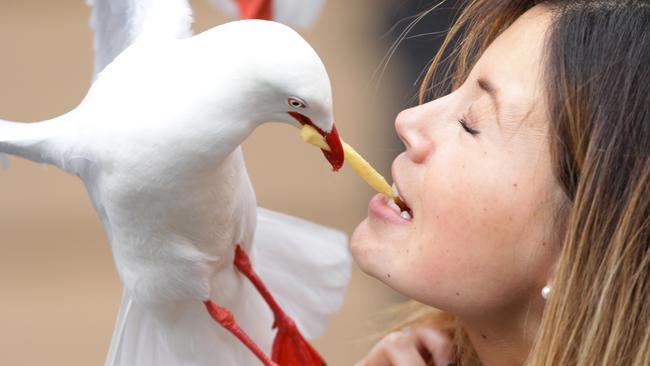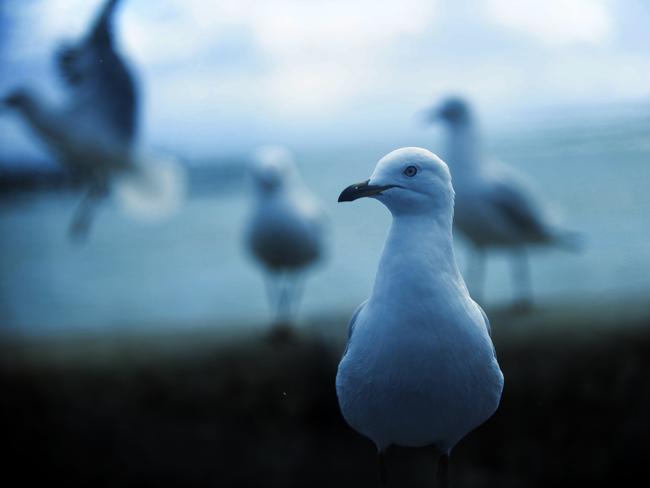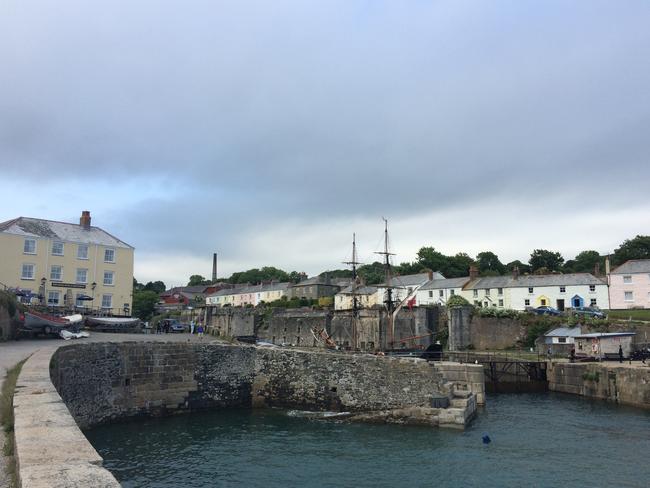British seaside town of Truro goes to war with fearless gulls
A TOWN under siege from seagulls — stealing food, dive bombing kids and killing pets — has taken unusual measures to deter the marauders.

A TOWN under siege from aggressive seagulls — that steal food, dive bomb children and attack small pets — has taken unusual measures to deter the marauders.
Their solution is the stuff of a Monty Python sketch: a special anti-gull paint, named Flock Off.
The visually intense paint, which will be applied to lamp posts in the British seaside town of Truro, is said to reflect the sun’s rays and temporarily blind the birds so they cannot land.
Truro deputy mayor Rob Nolan described the Cornwall destination as “under siege”.
“It’s the main subject people complain about,” he told the Independent.

Even British prime minister David Cameron said a dialogue was needed about the winged pests, during a visit to Cornwall at the weekend. “I think a big conversation needs to happen about this and frankly the people we need to listen to are people who really understand this issue in Cornwall, and the potential effects it is having,” he told BBC Radio Cornwall.
Last week, a pet tortoise named Stig was reportedly killed by gulls in his home’s back yard. Owner Jan Byrne, 43, from Liskeard, described the incident as like a “scene from a horror movie”.

In May, a chihuahua puppy was killed by gulls in Honiton, Devon, and last week an eight-year-old Yorkshire terrier named Roo was also pecked to death in Newquay, Cornwall, as his owner’s children looked on.
In what is thought to be a frustrated backlash, a poisoned seagull was dumped at a Dorset police station on the weekend, sparking an investigation. All gulls are protected under the Wildlife and Countryside Act 1981 and it is illegal to injure any species of gull or damage an active nest. Discussing the pet attacks, Royal Society for the Protection of Birds spokesman Grahame Madge said: “This is not a change in seagull behaviour. We are talking about three tragic incidents where gulls have reportedly been responsible … but this is not an indication that the species is becoming more aggressive.”

He suggested that a decline in the Herring Gull population (by 50 per cent in the last 30 years) and a scarcity of food out at sea was driving the increase in gull incidents. “The decline in numbers means that more gulls are nesting in towns and cities — they are scavengers by nature and have adapted their habits in order to find food.”
Mr Nolan told the BBC painting the lampposts would not be an end to the problem but was “something the council can do for the price of a few tins of paint”.




